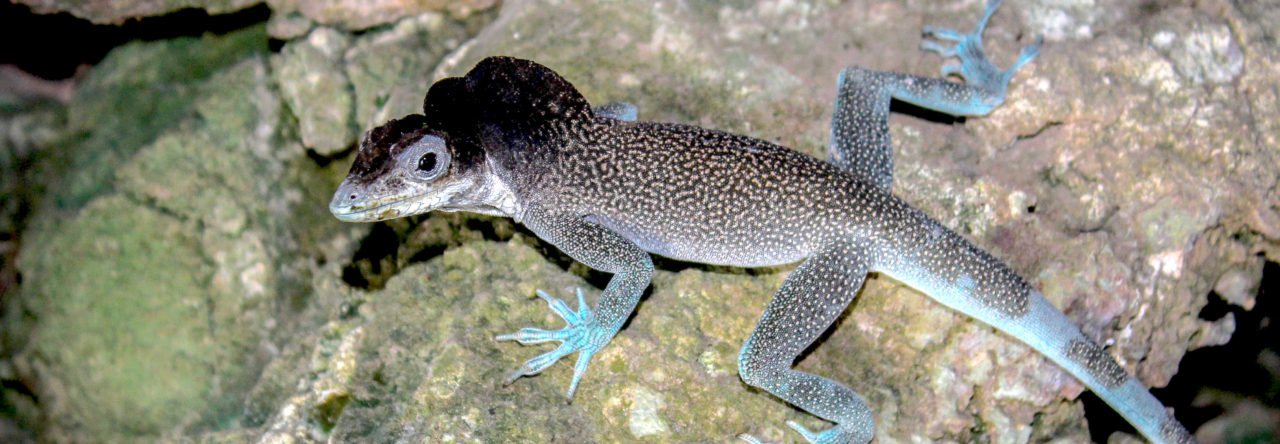Answersingenesis.org, whose mission is to “proclaim the absolute truth and authority of the Bible with boldness,” has a Science Notes section which provides “a weekly feature examining news from the biblical viewpoint.” Here’s what it had to say about the publication of the Anolis carolinensis genome (full article here):
“Delighted with a discovery related to human origins, researcher Jessica Alföldi noted that “Anoles have a living library of transposable elements,” bits of DNA that don’t code for anything and show up in lots of different locations. About a hundred of these were able to be matched up with counterparts on the human genome. Therefore, she concludes, “In anoles, these transposons are still hopping around, but evolution has used them for its own purposes, turning them into something functional in humans.” Pleased to have learned where humans got these non-coding genetic elements, she explains, “Sometimes you need to be at a certain distance in order to learn about how the human genome evolved.”
This comparative genetic study was certainly exhaustive, but the interpretation of the data in the shadow of the evolutionary tree of life is unjustified and unproven. Knowing that God designed all organisms to live in the same world, we should not be surprised to find that genes coding for the same proteins are needed in many, explaining the similarities across kinds. Each creature created in Creation week was fully equipped with the features it needed and the genes to code for many variations of those features. The fact that some things are similar and others are different does not show that reptiles, mammals, and birds share a common ancestor.”
- Evolution in Real Time on Lizard Island - March 23, 2025
- Spider Snags Adult Anolis osa - March 22, 2025
- An Homage to the Green Anoles of New Orleans - March 21, 2025


marthamunoz
All press is good press? To me, it just means that the genome has officially landed. Hopefully people who read that article will look at the genome paper for themselves. It’s a fantastic piece of work.
hastley
Musicians say they feel like they’ve really “made it big” once Weird Al parodies their songs. Perhaps this should be taken in the same light, with similar levels of laughter.
Ellis Hamilton
Is it me, or does this post seem rather vague as to where Anole Annals stands on the Evolution/Creationism “debate”? I would hope that Anole Annals would come down firmly on the side of Darwinian natural selection, as it seems to be a blog grounded in science. However, as a new reader of this blog, I may be mistaken in that assumption. Either way, please make your position clear, so that I and others can decide if we’ll continue to follow Anole Annals. Thank you.
Janson Jones
Ellis, sometimes when I have similar concerns I’ll look up background data of the author/s. Anole Annals is a community blog written by many authors, but this particular post was written by Jonathan Losos. A quick google search will bring you the following profile of Losos by the Harvard Crimson: http://www.thecrimson.com/article/2009/6/2/class-of-1984-jonathan-b-losos/. This profile might help provide some context to the author and his position in response to your question.
As far as explicit surface-judgments within the text of any given post, I rather appreciate that some posts on the Annals simply provide links, citations, and references to external discussions relating to Anolis without explicit condemnation — even if the sources in-reference are far from the mindset of most Anolis readers. I think it’s moderately safe to assume most of this community believes evolution is real. I’m pretty sure Losos does (though he could, in fact, be some kind of Andy-Kaufmanesque creationist performance-artist only pretending to believe in ecomorphology and such — which, now that I think about it, would be awesome). Heh.
– Janson!